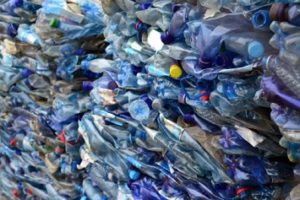In the absence of any enthusiasm on the part of the U.S. Environmental Protection Agency (EPA) in environmental matters, environment, health, and safety (EHS) managers should look to states for new developments in the environmental arena. Today we will look at a new law in Florida that encourages plastics recycling.
Florida Governor Rick Scott recently signed into law a bill that creates guidelines for the resource recovery and management of certain plastic materials. The bill exempts the processing of these “recovered materials” from solid waste regulations.
The American Chemistry Council hails the new Florida law as “first-of-its-kind legislation that will make Florida a welcoming environment for innovative businesses that convert post-use non-recycled plastics into fuels, chemicals and chemical intermediates.”
What makes this new Florida law so innovative and why should you encourage your state to follow suit?
Recovered Material vs. Waste
Under Florida law, certain recovered materials that have known recycling potential, can be feasibly recycled, or diverted and source separated or removed from the solid waste stream for sale, use, or reuse as raw materials are exempt from solid waste management regulations. The law is now amended to apply the conditions applicable to recovered materials to post-use plastic polymers.
New Technologies Recognized
Florida’s new law allows post-use plastic polymers that might otherwise become waste to be converted to another material using either gasification or pyrolysis. The law recognizes the ability of new technologies such as gasification and pyrolysis to recover more energy from used plastics.
Gasification is the process through which post-use polymers are heated and converted to synthesis gas in an oxygen-deficient atmosphere.
Pyrolysis is the process by which post-use polymers are heated in the absence of oxygen until melted and thermally decomposed and then cooled, condensed, and converted to another material.
Through gasification, the post-use polymers can be converted to crude oil, fuels, or chemical feedstocks.
Through pyrolysis, the post-use polymers can be converted to crude oil, diesel, gasoline, home heating oil, or another fuel; feedstocks; diesel and gasoline blendstocks; chemicals, waxes, or lubricants; and other raw materials or intermediate or final products.
Pyrolysis facilities that handle these post-use polymers and convert them through gasification or pyrolysis under the conditions set out in the new law will not be considered solid waste facilities and will, therefore, be exempt from applicable solid waste regulations.
Same Conditions as Recovered Materials
Post-use plastic polymers and pyrolysis facilities are now subject to the same conditions as those for recovered materials and recovered materials facilities. These conditions include that a majority of the materials at any facility be sold, used, or reused within 1 year. In addition, there are initial and annual certification and reporting requirements.
Toward the Recycling Goal
Florida has a statewide recycling goal of 75 percent to be achieved by 2020. The inclusion of post-use plastic polymers in the recovered materials standard will help the state meet that goal.
Key Takeaway for EHS Managers
Any law or regulation that promotes the use of new technologies as a way of reducing the regulatory burden should be encouraged. If your state environmental officials are not aware of this new Florida law, bring it to their attention.

